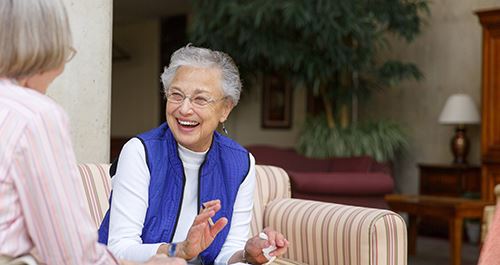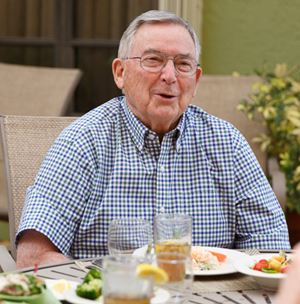If you are starting to consider retirement, you probably have a lot of thoughts running through your head.
Transitions come with a range of emotions—and retirement is a major life change. Rest assured that you are not alone with these feelings. Countless retirees have the same emotions when preparing for the transition.
Knowing the five emotional stages of retirement can help you understand the feelings you may be experiencing. Here are the five most common emotional phases of retirement you will probably face when you retire:

1: Planning Phase of Retirement
The planning phase of retirement begins long before you stop working. During the planning or pre-retirement phase, you start asking yourself:
When Should I Retire?
When deciding when to retire, you should consider your financial situation, healthcare needs, and enjoyment at work. While there is no “best age” to retire, your social security benefits will increase by 8% each year you delay taking it until you turn 70. Still, a 2022 Gallop survey reported the average retirement age in the U.S. was 61.
Where Should I Retire?
Deciding where you should retire is a personal decision that depends on many factors. You should consider:
- Cost of living
- Retirement tax benefits
- Distance from family and friends
- Accessibility features
- Weather
How Much Money Do I Need to Save?
Financial planning for retirement is very important in this phase. The amount of money you need to retire is different for everyone. There are many ways to calculate how big your nest egg should be. Many experts recommend retirees should plan to live on 80% of their pre-retirement annual income.
Generally, you should be thinking about what your retirement lifestyle will be, what your expected healthcare expenses will be, and how you can save on taxes.
When you’re in the planning stage of retirement, it’s important to spend time preparing yourself emotionally. Retirement is a big change, and you want to be ready for it. By taking your emotions into consideration and seeking to understand them, you’ll be able to transition easily into the next stage.
2: Excitement Phase of Retirement
The closer you get to retirement, the more excited you’ll begin to feel. When was the last time you didn’t have to go to work or worry about other responsibilities? You’ve been planning your retirement for years—now it’s time to get excited about all the new experiences you will get to have.
It's common to have some uncertainty in this stage of retirement as the anticipation builds. You might wonder who you are outside of all the responsibilities that have defined you—but that’s one of the most exciting things about retirement. In this part of your life, you can be whoever you want to be. The possibilities are endless, and you’ll be counting down the days until retirement officially begins.

3: Honeymoon Phase of Retirement
The honeymoon phase of retirement begins once you officially retire. Now that you’ve stopped working, you can finally enjoy all the opportunities available to you. You can learn a new hobby, visit your family, travel to places you have never been, get some much-needed rest, and simply enjoy your retirement years.
Unfortunately, the Honeymoon Stage does not last forever. After a year or so, you might start to identify a desire for something deeper. You have worked hard for this time in your life, so it’s important to get as much enjoyment out of retirement as possible—but don’t be surprised when the next stage of retirement sneaks up on you.
4: Disenchantment Phase of Retirement
During the disenchantment phase of retirement, you might begin to think retirement isn’t as fun as you expected it to be. Retirees in this stage are disappointed or bored with their relaxed daily life and may feel purposeless. There are only so many hobbies you can learn and places you can visit before everything starts to feel the same again.
This feeling of disenchantment can sometimes be accompanied by more serious psychological feelings of depression. In this stage, it’s important to ask for help if you need it. Talk to your family and friends about your feelings. They can help you look for ways to create a sense of purpose again. This might be a good time to invest in something bigger than yourself. You could consider continuing education opportunities, or volunteer.
Many retirees find purpose in donating their time to local or national organizations including:
- AmeriCorps Seniors: Various service opportunities to get involved in your community.
- Alzheimer’s Association: Make a difference in the lives of people facing Alzheimer’s and dementia.
- Meals on Wheels: Deliver meals to older adults in need.
- Habitat for Humanity: Build or repair homes.
- National Park Service: Preserve and protect our national parks.
- Humane Society: Help build an animal welfare movement.
For retirees with limited mobility, GetSetUp is a great platform with live classes designed for older adults in categories like business, cooking, travel, music, and more.

5: Reorientation & Stability Phase of Retirement
The reorientation phase of retirement is often considered the most challenging. After you experience the highs and lows of retirement, you start to orient yourself with your new life and identity. Our jobs often make up a significant part of who we are, and without them, we are forced to learn more about ourselves and what truly makes us happy.
Once you have settled into retirement and are enjoying your life with your new sense of purpose and identity, you have reached the final stability stage of retirement. It can take years to reach this stage. Because medical needs may be more prevalent, many retirees prioritize their health for this stage. One of the bets options it to move into a continuing care retirement community, where health services are included as part of your living arrangements.
Transitioning to Retirement
Knowing the five emotional stages of retirement is helpful, but it can also be a little bit intimidating. Sure, you are probably excited for the honeymoon phase—but what about the stages that come afterward? At Acts Retirement-Life Communities, we want to make sure you don’t go through these phases of retirement alone alone. Our communities are full of friendly staff and fellow retirees who will walk beside you every step of the way.






